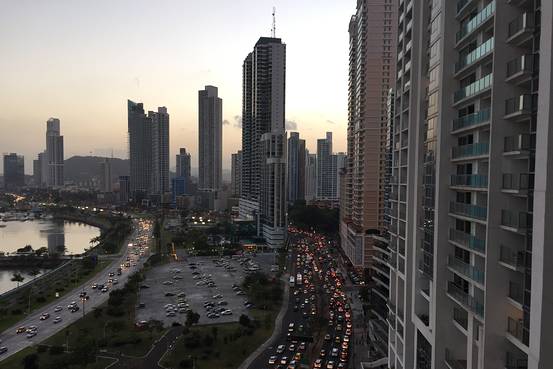Kathleen Peddicord writes for the Wall Street Journal about the attraction of Panama as a place for Expats to do business.
PANAMA CITY–In 2008 I left the publishing company where I’d been working for 23 years. I was 45-years-old and living in Paris. One afternoon, I announced to my husband that I wanted to start a business of my own.
“We’ll need to leave Paris,” he replied. He didn’t need to spell it out: running a business in France is expensive, a reflection of the country’s labor and tax regimes.
We were in the fortunate position of being able to move anywhere, so, as much as we loved living in Paris, the question became: If France is among the worst places in the world to invest in a business, where would be among the best?
My husband and I had managed businesses in eight countries. Based on that experience, I made a list things important to the expat entrepreneur, as follows:
- Quality and cost of infrastructure, especially Internet and banking
- Quality, availability, and cost of English-speaking labor
- The country’s approach to taxation
- The current administration’s perspective on foreign business and foreign investment
- Residency and work permit options
- Cost of doing business, especially office rent
- Ease of setting up a company
- Stability of the local currency (if other than the U.S. dollar)
- Time zone relative to the business’ intended marketplace
- Local labor law
- Local standard of living
I considered the countries I knew from experience and others, too, in the context of these 11 questions, and one stood out: Panama.
The infrastructure in Panama City is the best in the region, in part thanks to the decades-long U.S. military presence here when the Americans ran the Panama Canal. Panama as a whole is a safe, stable, affordable country that uses the U.S. dollar as its currency, meaning no exchange-rate risk. The standard of living is comfortable, even international standard if your budget stretches to allow for it.
Those things, though, are true for many other places that could also make sense for the would-be entrepreneur, including in Latin America but also in Europe and Asia.
Panama’s trump card is the approach it takes to taxation, both personal and corporate. It’s possible to live and run a business you own in Panama paying little in taxes, even if you’re an American. The list of places around the world where that is true is short. I’m speaking of legal and compliant strategies. It’s not difficult to organize, but you need competent advice from a tax expert who understands both Panama’s approach to taxing corporate income and the obligations to Uncle Sam of an American living and earning money in another country. You may really need two tax experts, as finding one who understands both sides of this tax picture will be nearly impossible.
Because I understood Panama’s tax advantages, the country rose quickly to the top of my where-should-I-locate-the-business list. The second reason I focused early on Panama and, in the end, chose to base my new Internet publishing business there is Panama City’s labor pool.
Over the past dozen years, Panama City has evolved into a global melting pot. In addition to Panamanians and Americans, who have been part of this landscape for more than 100 years, today’s Panama City is home to Venezuelans, Colombians, El Salvadorans, Hondurans, Costa Ricans, Guatemalans, and Nicaraguans who have migrated to Central America’s most developed city in search of safe haven. Included in this population of regional migrants are investors who have bought real estate and started businesses; unskilled laborers employed as maids and restaurant staff; and, relevant for us, the cream of the regional labor crop: people who recognize they can get better jobs and make more money in Panama City than anywhere else in Central America.
That labor pool was enough to get our attention back in 2008. However, something important happened four years after we moved to Panama that made Panama City an even more interesting place to be an employer: In 2012, Panama’s former President Ricardo Martinelli issued an Executive Order creating what’s become known as this country’s “Friendly Nations” visa program.
Overnight, Panama was targeted by eager, educated and English-speaking 20- and 30-somethings from North America and Europe in search of employment opportunities. Thanks to the Friendly Nations program, these enthusiastic youngsters, then and today, can obtain both easy residency and work permits. It’s a uniquely turnkey program that makes it possible for anyone holding a passport from one of the 48 countries on the “friendly nations” list to be able to live and work legally in Panama almost immediately. President Martinelli issued his decree in a creative attempt to provide more qualified labor for the dozens of foreign businesses setting up shop in his country.
Over the past three years since this visa option became available, we have hired staff from the U.S., Canada, Ireland, the U.K., Germany, Australia, New Zealand, and Belgium, none of whom we would have been able to employ (legally) otherwise.
Seven years on in Panama, we have built a successful, fast-growing business to the point where my husband and I feel comfortable backing away from full-time operations. Later this year, we’ll begin splitting our time between Paris and Panama. We’ll continue contributing to the business as we have always done, but now sometimes from a distance, counting on our management team to keep the lights on in Panama City day-to-day.
